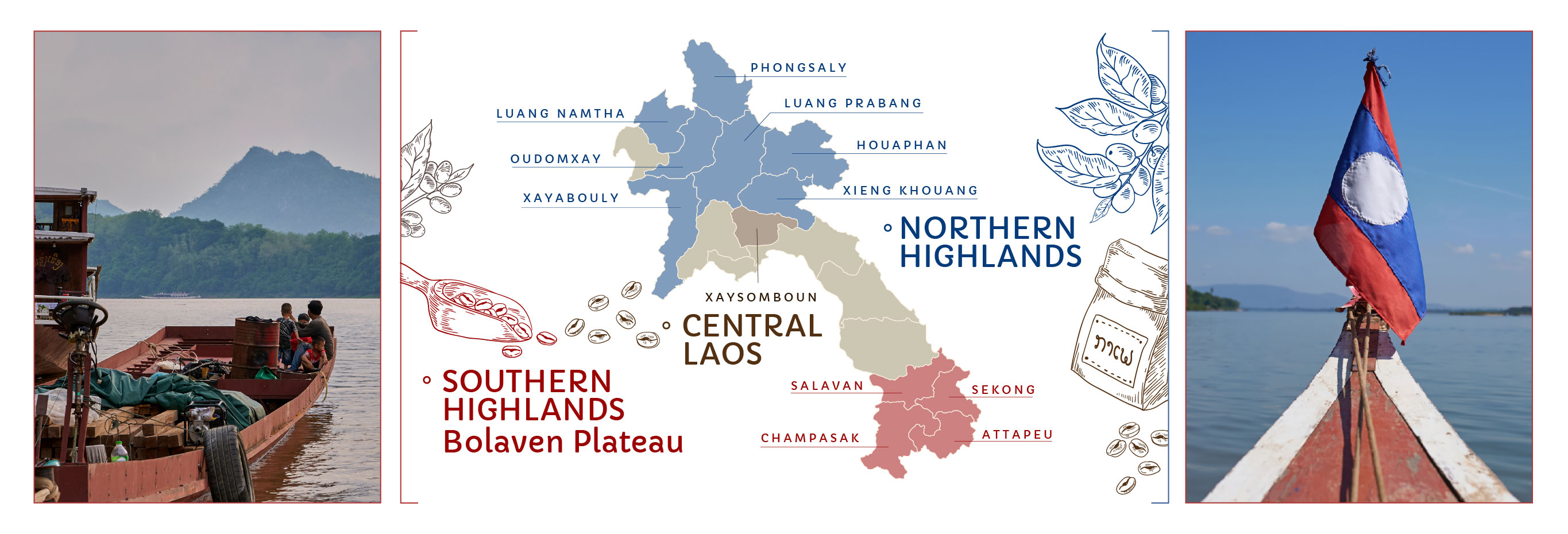Coffee in Luang Namtha Province
Luang Namtha in northwestern Laos borders China and Myanmar. Its rugged peaks, dense forests, and fertile valleys are fed by the Nam Tha, Nam Fa, and Nam Long rivers.
Luang Namtha’s tropical monsoon climate and elevations above 800 m provide ideal conditions for cultivating high-quality Arabica coffee, making it a key part of Laos’ strategy to diversify coffee production beyond the south.
Although rice remains the staple crop, coffee is becoming increasingly profitable for the region.
Luang Namtha is home to over 20 ethnic groups, including the Lao, Tai Lue, Khmu, Akha, and Hmong, and the province’s agricultural practices are deeply influenced by traditional knowledge and cultural rituals.
The Khmu people’s expertise in forest ecology shapes mixed farming techniques, while the Akha guide land management. The Tai Lue blend Buddhist and animist rituals into their agricultural calendar, and the Hmong practice communal farming responsibilities and highland agriculture.
Efforts to promote sustainable coffee cultivation respect these traditions. One organisation, the UPLAO Foundation, supports organic farming methods aligned with local practices, while international collaborations encourage sustainable farming over slash-and-burn techniques.
In the Northern Highlands, coffee is a sustainable source of income essential for remote communities.
Case Study – The Quick Impact Project
In January 2024, the Luang Namtha provincial authorities launched the Indian-funded Quick Impact Project in Namvang Village, Viengphouka district.
This initiative, covering 45 hectares, focuses on cultivating organic coffee while enhancing quality, promoting sustainable agricultural practices, and diversifying the local economy through agroforestry.
The aim of the Quick Impact Project is to help farmers improve the quality of their coffee using sustainable methods. This includes providing training, tools, and planting techniques.
The project encourages agroforestry, where coffee is grown alongside fruit and nut trees, helping protect the soil, water, and local environment.
Over 15,000 coffee plants have been introduced in recent years. Organisations like UPLAO also support this work, helping farmers to increase income while protecting nature.
Namvang Village is now moving away from traditional slash-and-burn farming. Farmers are using better growing methods that care for the land and support long-term success.
This work has helped families earn more, diversify their incomes, and improve access to markets. The area’s high elevation and climate help them to grow high quality Arabica coffee.
Namvang is becoming a model for sustainable coffee in northern Laos and is helping to raise the profile of Lao coffee around the world.



